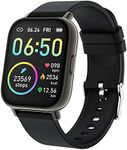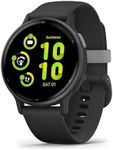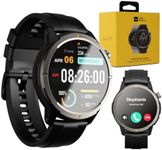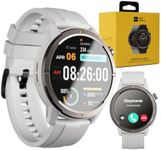Buying Guide for the Best Fitness Trackers
Choosing the right fitness tracker can significantly enhance your health and fitness journey. Fitness trackers come with a variety of features that can help you monitor your activity levels, sleep patterns, heart rate, and more. To find the best fit for you, it's important to understand the key specifications and how they align with your personal fitness goals and lifestyle. Here are some key specs to consider when selecting a fitness tracker.Activity TrackingActivity tracking is the core function of a fitness tracker. It monitors your daily steps, distance traveled, and calories burned. This spec is important because it helps you understand your daily activity levels and encourages you to stay active. Basic models track steps and distance, while more advanced ones can track specific activities like running, cycling, and swimming. Choose a tracker that matches the types of activities you regularly engage in.
Heart Rate MonitoringHeart rate monitoring measures your heart rate throughout the day and during workouts. This is important for understanding your cardiovascular health and optimizing your exercise intensity. Basic models offer continuous heart rate monitoring, while advanced models provide detailed insights like resting heart rate, heart rate zones, and stress levels. If you are serious about fitness or have specific health concerns, opt for a tracker with advanced heart rate monitoring features.
Sleep TrackingSleep tracking monitors your sleep patterns, including the duration and quality of your sleep. This is important for understanding how well you are resting and identifying factors that may be affecting your sleep. Basic models track sleep duration, while advanced models provide insights into different sleep stages (light, deep, REM) and offer tips for improving sleep quality. If sleep is a priority for you, choose a tracker with comprehensive sleep tracking capabilities.
GPSGPS functionality allows the fitness tracker to accurately track your outdoor activities like running, cycling, and hiking. This is important for mapping your routes and measuring distance and pace. Some trackers have built-in GPS, while others use your smartphone's GPS. If you frequently engage in outdoor activities and want precise tracking without carrying your phone, opt for a tracker with built-in GPS.
Water ResistanceWater resistance indicates how well the fitness tracker can withstand exposure to water. This is important if you plan to use the tracker while swimming, showering, or in rainy conditions. Water resistance levels vary, with some trackers being splash-proof and others being suitable for swimming. Choose a tracker with a water resistance rating that matches your lifestyle and activities.
Battery LifeBattery life determines how long the fitness tracker can operate before needing a recharge. This is important for convenience and ensuring the tracker is always ready to use. Battery life can range from a few days to several weeks, depending on the model and features. If you prefer not to charge your device frequently, look for a tracker with a longer battery life.
CompatibilityCompatibility refers to how well the fitness tracker works with your smartphone and other devices. This is important for syncing data, receiving notifications, and using companion apps. Most fitness trackers are compatible with both iOS and Android devices, but it's essential to check compatibility with your specific phone model. Choose a tracker that seamlessly integrates with your existing devices and apps.
DisplayThe display shows your activity data, notifications, and other information. This is important for ease of use and readability. Displays can range from simple LED indicators to full-color touchscreens. If you prefer a more interactive and visually appealing experience, opt for a tracker with a larger, high-resolution display.
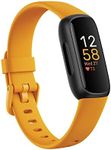
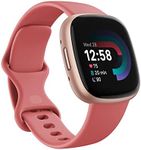

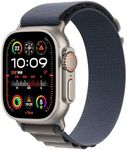

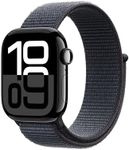
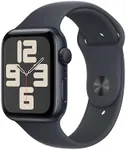
![Apple Watch Series 9 [GPS 41mm] Sma](https://images-proxy.bestreviews.guide/8Hrbb2AHrU7Ucp0Zw4A0qcCzGz0=/0x150/https://m.media-amazon.com/images/I/41Zpl0z9SvL._AC_CX679_.jpg)

